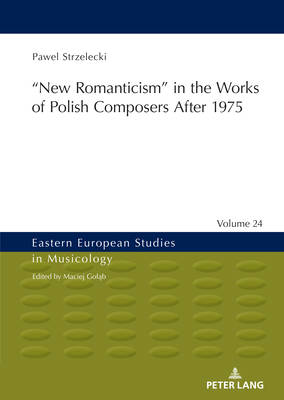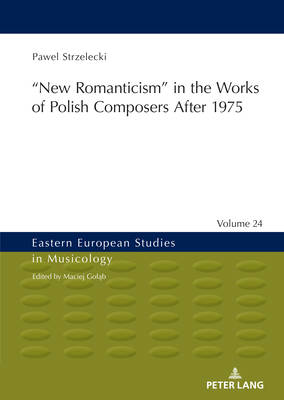
- Retrait gratuit dans votre magasin Club
- 7.000.000 titres dans notre catalogue
- Payer en toute sécurité
- Toujours un magasin près de chez vous
- Retrait gratuit dans votre magasin Club
- 7.000.0000 titres dans notre catalogue
- Payer en toute sécurité
- Toujours un magasin près de chez vous
Description
The monograph concerns one of the most important trends in contemporary classical Polish music. The ‟new romanticism" represented the reaction to the crisis of the avant-garde in the 70s. It appeared in works by the ‟1933 generation" (Penderecki, Górecki, Kilar), ‟the Stalowa Wola generation" (Knapik, Lasoń, Krzanowski), and others. This music matched tradition with contemporary techniques and strong emotionalism. Its romantic dimension and seriousness were in sheer contrast to the ‟double-coding" of Postmodernism. It stemmed from the political situation in Poland during the ‟Iron Curtain" times. The book also focuses on the topic's American (Schonberg, Rochberg) and European contexts. The author also analyzes 104 compositions and 30 interviews (incl. with Penderecki) to present an even fuller picture.
Spécifications
Parties prenantes
- Auteur(s) :
- Editeur:
Contenu
- Nombre de pages :
- 478
- Langue:
- Anglais
- Collection :
- Tome:
- n° 24
Caractéristiques
- EAN:
- 9783631874448
- Date de parution :
- 29-09-22
- Format:
- Livre relié
- Format numérique:
- Ongenaaid / garenloos gebonden
- Dimensions :
- 148 mm x 210 mm
- Poids :
- 775 g

Les avis
Nous publions uniquement les avis qui respectent les conditions requises. Consultez nos conditions pour les avis.






